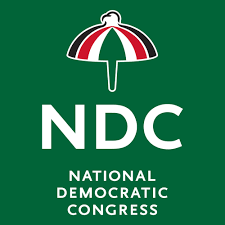The West Gonja municipality Environmental Working Group (EWG) has outlined activities to be executed in it’s quest to sustain environmental campaign and help fight against food insecurity and bad agricultural land restoration practices in the area.
The working group is a product of the CRS’s Enhance Agriculture Land Restoration (ENHANCE) project being implemented in the West Gonja municipality of the Savannah region and West Mamprusi assembly in the North East region of Ghana.
The activities the West Gonja municipality group outlined to help sustainability of the project include continuous sensitization of communities, organizing refresher training on bush fires for community fire volunteers, meetings with herders across the project communities, meetings with charcoal producers and farmers association, meetings with traditional authorities, facilitating implementation or enactment of community by-laws, scale up training of women on cooking energy saving stove construction, submission of proposals in support of environmental campaign/activities, meetings with the Damongo Constituency MP and Lands and Natural Resources minister to discuss the way forward on fighting climate destruction, promoting gender transformation agenda and identification and establishment of EWG in the 10 project communities.
Bonyantowura Kwaja Samuel, a traditional leader for the Bonyanto Community in Busunu traditional area of the West Gonja municipality said since it’s inception in February 2022, the Environmental Working Group (EWG) has been working with some ten communities to help protect the environment and also embarked on some regeneration activities.
The EWG has undergone trainings to help technical members executive Shea tree grafting, among others. This will promote the planting of more Shea trees, increase income in the long run for actors and reduce the destruction of the environment.
Chief Bonyantowura Kwaja Samuel commended CRS for the massive support through out the working group’s activities and called on others to emulate their gesture.
The formation of environmental school clubs at the project communities to make sure school children adopt the habit of tree planting and protection of the environment is good plan.
Energy saving stoves have been introduced to women and rural communities to help save the destruction of the environment.
The ENHANCE project has assisted the working group planted more seedlings through the Farmer Managed Natural Regeneration (FMNR). The project has good collaboration with Northern Restoration Initiative for sustainable environment, local partners, and has improved the bottle irrigation technology, and the gender transformation agenda.
The CRS Environmental Working Group in October 2022 held overview meetings in Bole and Mole National park to review and agree on some activities on sustainable path for the project after CRS support comes to an end in November 2022, as captured above.
Mr. Daniel Yakuba, the monitoring, evaluation, accountability and learning coordinator for CRS Ghana and his team facilitated the workshop and supported by the working group’s leadership in the area.
ABOUT “ENHANCING AGRICULTURAL LAND RESTORATION (ENHANCE)”
This project was implemented from February to September/November, 2022 in two main districts or municipalities (West Mamprusi and West Gonja) with the overall goal to increased food security and climate variability resilience of farmer House Holds (HHs) by scaled up regreening practices.
The implementation is done side-by -side with the Ghana Private Agricultural Service Providers Network project (PASP) in the same districts.
The project seeks to achieve this through Enhancing coordination and institutional networking of land restoration actors, where two (2) Environmental working groups were formed and expected to be functioning by September 2022, working and providing advise to the district assemblies on degradation issues.
Enhancing partners and stakeholders access to restoration data scaling up regreening practices and technologies among farmer House Holds with a target of about 3000 (1500 in each district) Households covered, 1,000 hectares of degraded lands (500 in each district), restored 15 Agriculture Extension Agents (7 in each district), trained 90 Lead farmers (45 in each district), trained 20 communities (10 in each district), covered 1 Environmental working group formed in each district.
The project employed trainings to enhance beneficiaries’ knowledge, on field demonstrations, workshops, exchange visits, community fora, videos and radios will also be used to disseminate technologies and results.
Community nurseries and Farmer-Managed Natural Regeration (FMNR) hubs have been established and used as training centers for training farmers.
The project will help increase awareness of communities on climate change and implications on their socio-economic wellbeing.
It will also enhance communities’ tree-based and alternative livelihoods, strengthened Natural Resource Management (NRM) governance at community and district levels, increase application of knowledge and skills of applying best practices including Farmer-Managed Natural Regeration (FMNR) to restore lands, and put degraded lands under various forms of restoration to enhance better future.
By: @nuhuzulqa
0242381890

















